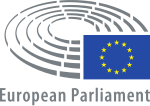The European Parliament Intergroup on long term investment and reindustrialisation or #invest 4 future is an intergroup of the European Parliament's legislators which focuses on financing of long-term sustainable investment in the real economy within the European Union. It is aimed to accompany European regulatory work during the period 2014-2019. [1]
